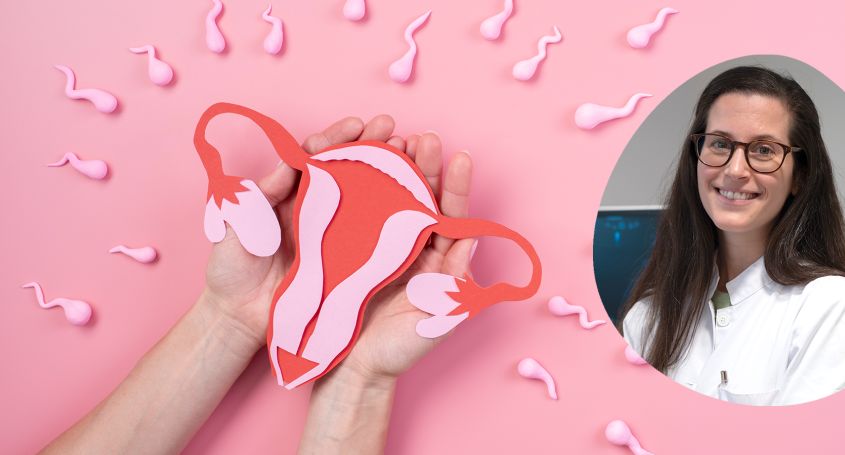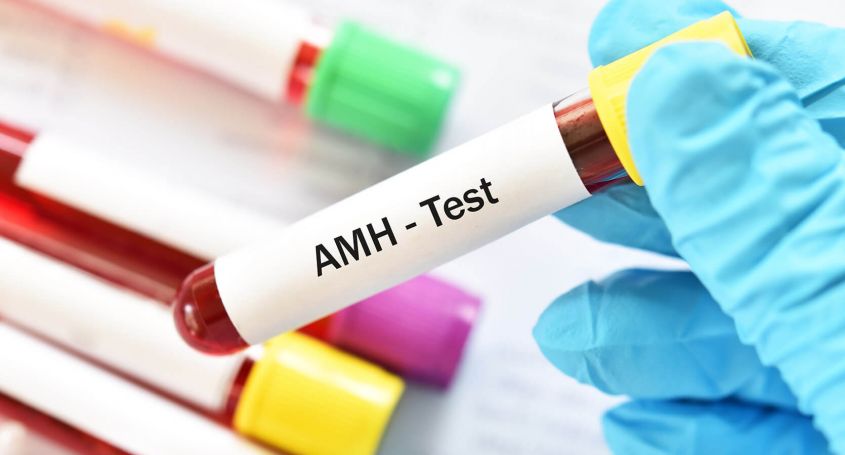Interview Dr. Pilar Carrillo
Hormones play a critical role in reproductive health, and any disruption to their balance can affect fertility. From conditions such as hypothyroidism to early ovarian failure, hormonal disorders can influence the ability to conceive and the success of assisted reproductive treatments.
To better understand this relationship and learn about the latest medical advances, we spoke with Dr. Pilar Carrillo, a gynecologist specializing in fertility and assisted reproduction , who explains how certain hormonal imbalances impact fertility, what tests help evaluate them, and what strategies can optimize the chances of pregnancy.
How do hormonal disorders, such as hypothyroidism or early ovarian failure, affect the ability to conceive?
Hormonal disorders, such as hypothyroidism and early ovarian insufficiency (PID), can significantly affect the ability to conceive due to their impact on hormonal balance and reproductive function. We are starting to talk about hypothyroidism, which is an endocrine dysfunction characterized by an insufficiency in the production of thyroid hormones by the thyroid gland. These hormones are essential for regulating metabolism and other body functions, including those related to fertility.
Hypothyroidism can cause irregular menstrual cycles or amenorrhea (absence of menstruation), as thyroid hormone deficiency can disrupt the release of thyroid-stimulating hormone (TSH) and other regulatory hormones such as luteinizing hormone (LH) and follicle-stimulating hormone (FSH). This can interfere with follicular development, compromising ovulation and therefore conception. In addition, in some cases hypothyroidism can be associated with an increase in levels of prolactin, a hormone that inhibits ovulation, making fertilization impossible. In addition, in cases where conception is achieved, untreated hypothyroidism can increase the risk of miscarriage. Therefore, always before a pregnancy we will study the thyroid function to make sure that there is no imbalance that requires treatment.
Another different situation is premature ovarian failure (POI), also known as early ovarian failure. It is a clinical condition characterized by the loss of ovarian function before the age of 40. In this condition, the ovaries stop functioning properly, resulting in a decrease or absence of the production of female sex hormones (such as estrogen) and an absence of monthly follicular development, leading to the interruption of menstrual cycles.
Unlike menopause, which occurs naturally in women over the age of 50, premature ovarian failure involves early dysfunction of the ovary. This condition can be associated with menopause-like symptoms, such as hot flashes, night sweats, vaginal dryness, and mood disturbances. In addition, it can lead to infertility, as ovulation does not occur normally. Premature ovarian failure can be caused by a variety of factors, including autoimmune diseases, genetic disorders, medical treatments such as chemotherapy or radiation therapy, and environmental factors. Diagnosis is made by hormonal tests that show elevated levels of follicle-stimulating hormone (FSH) and low levels of estrogen. Treatment may include hormone replacement therapy to relieve symptoms of hypoestrogenism. In cases where pregnancy is sought, there are options such as egg donation treatments, which can help us fulfill the dream of becoming a mother.
In relation to adenomyosis, how does this condition influence women's reproductive health?
Adenomyosis is a benign gynecological condition in which endometrial tissue invades the muscular wall of the uterus, known as the myometrium. This invasion can lead to thickening of the uterus and alterations in its contraction and compliance, which can affect women's reproductive health. Women with adenomyosis may experience painful menstrual cycles, heavy menstrual bleeding, and chronic pelvic pain. In addition, the presence of adenomyosis can make it difficult for the embryo to implant, increase the risk of miscarriage and complications during pregnancy. Currently, we can diagnose this condition very effectively using a specialized transvaginal gynecological ultrasound. It is essential to make a correct diagnosis in order to adapt treatment protocols and offer the best possible results. It will also be key to carry out a personalized follow-up once pregnancy has been achieved.
How important is anti-Müllerian hormone (AMH) in fertility assessment and how is it measured?
Today, anti-Müllerian hormone (AMH) is one of the most well-known hormones in gynaecology consultations. This is an extremely useful parameter for gynecologists who are dedicated to assisted reproduction, but it is also a source of certain misunderstandings in the female population of reproductive age. Given this reality, I think it is very important to clarify the value and information that this parameter transmits to us. AMH is a substance produced by ovarian follicles, which are structures that contain the oocyte inside. Their blood measurement has become key to evaluating a woman's ovarian reserve . All women are born with a certain number of eggs in their ovaries, known as our ovarian reserve, and we know that, in a totally normal way, this reserve progressively decreases with age. This process accelerates from the age of 35 and, again, from the age of 40. AMH is an excellent parameter for assessing the possible response to ovarian stimulation. That is, when we administer hormonal medication to stimulate the ovary, it helps us estimate how many eggs we could retrieve. This information allows us to design stimulation protocols in a personalized way and also to reduce risks and complications. AMH, therefore, is a very useful hormone in the field of assisted reproduction; However, I would like to pause and clarify a concept. The AMH never informs us about a woman's fertility. It is not a marker of the possibility of natural conception or a predictor of infertility problems in the future.
This is important because low AMH levels can compromise the ovary's ability to respond to stimulation treatment, but they do not in any way condition a woman's ability to get pregnant naturally. Sometimes, patients feel that having a low AMH condemns them to reproductive problems. Therefore, the most important concept of AMH that I would like to convey is that it is not a marker of spontaneous fertility, but an indicator of the response to ovarian stimulation in fertility treatments. We must be cautious with its interpretation outside of this context.
What are the medical treatments to balance hormonal disorders and improve fertility rates?
Hormonal disorders can significantly interfere with fertility, but fortunately there are several treatments that can be effective, depending on the source of the problem. For example, in the case of hypothyroidism mentioned above, it is important to carry out adequate follow-up and assess whether it is necessary to prescribe treatment with levothyroxine, known as Eutirox, in patients who require it. In the case of early ovarian failure, treatment with hormone replacement therapy can be instituted to improve the woman's bone and cardiovascular health, as well as her quality of life. If the patient is trying to get pregnant and requires treatment with egg donation, the uterus can be prepared to receive the embryo using exogenously administered estrogens, replacing the hormonal supply that is missing.
Another common hormonal disorder is polycystic ovary syndrome, in which patients may have various hormonal alterations that condition irregular or anovulatory cycles. In these cases, the first therapeutic step will always be to make appropriate lifestyle changes, such as diet and exercise, which are two key pillars for the improvement of their symptoms. If, after making these modifications, irregular cycles persist, we must assess each case individually and determine which is the most appropriate treatment, mainly based on the age of the patient and the time of gestational search.
Another hormonal disorder that can affect the menstrual cycle is hyperprolactinemia, which consists of elevated levels of prolactin. This imbalance can cause alterations that affect the menstrual cycle and ovulation. Once detected, it is necessary to perform a global endocrinological assessment to prescribe the appropriate treatment to restore menstrual cycles and ovarian function.
These are some of the most common hormonal disorders. It will be critical that each treatment is tailored to each woman's individual needs and performed under the supervision of a fertility specialist, who will be able to customize treatment options based on the patient's specific hormonal disorder and health conditions.
What is the impact of lifestyle and eating habits on hormonal balance and fertility?
Lifestyle and eating habits have a significant impact on hormonal balance and fertility, as they influence various metabolic and hormonal processes key to reproductive function. In short, the phrase 'we are what we eat' also applies to assisted reproduction, since an unbalanced diet, rich in saturated fats, refined sugars and low in essential nutrients, such as vitamins and minerals, can alter hormonal regulation, affecting the production of reproductive hormones such as estrogen, progesterone and testosterone. Excess body weight, especially obesity, which is becoming more prevalent in our population, can lead to increased levels of insulin and hormones such as androgens, which can interfere with ovulation and ovarian function, increasing the risk of conditions such as polycystic ovary syndrome (PCOS).
On the other hand, malnutrition or insufficient caloric intake can reduce hormone production, which could lead to menstrual irregularities or even the absence of menstruation (amenorrhea). Adequate intake of antioxidants, essential fatty acids, and micronutrients, such as folic acid, zinc, and iron, will be crucial to maintaining a healthy hormonal environment and optimizing ovarian and sperm quality. Therefore, in the pre-conception period we must pay special attention to receiving a complete and balanced nutritional intake. In addition, factors such as chronic stress, a sedentary lifestyle or excessive consumption of alcohol and tobacco can also alter hormonal balance, negatively affecting fertility. Therefore, I always recommend all my patients to adopt a healthy lifestyle, which includes a balanced diet and regular physical exercise as a basis and maintain it for life beyond pregnancy.
Hormonal balance is a key factor in fertility, and thanks to medical advances and a personalized approach, it is possible to address many of these challenges. We thank Dr. Pilar Carrillo for sharing her knowledge and providing clarity on this topic that is so relevant for those who seek to fulfill their desire to become parents.




















